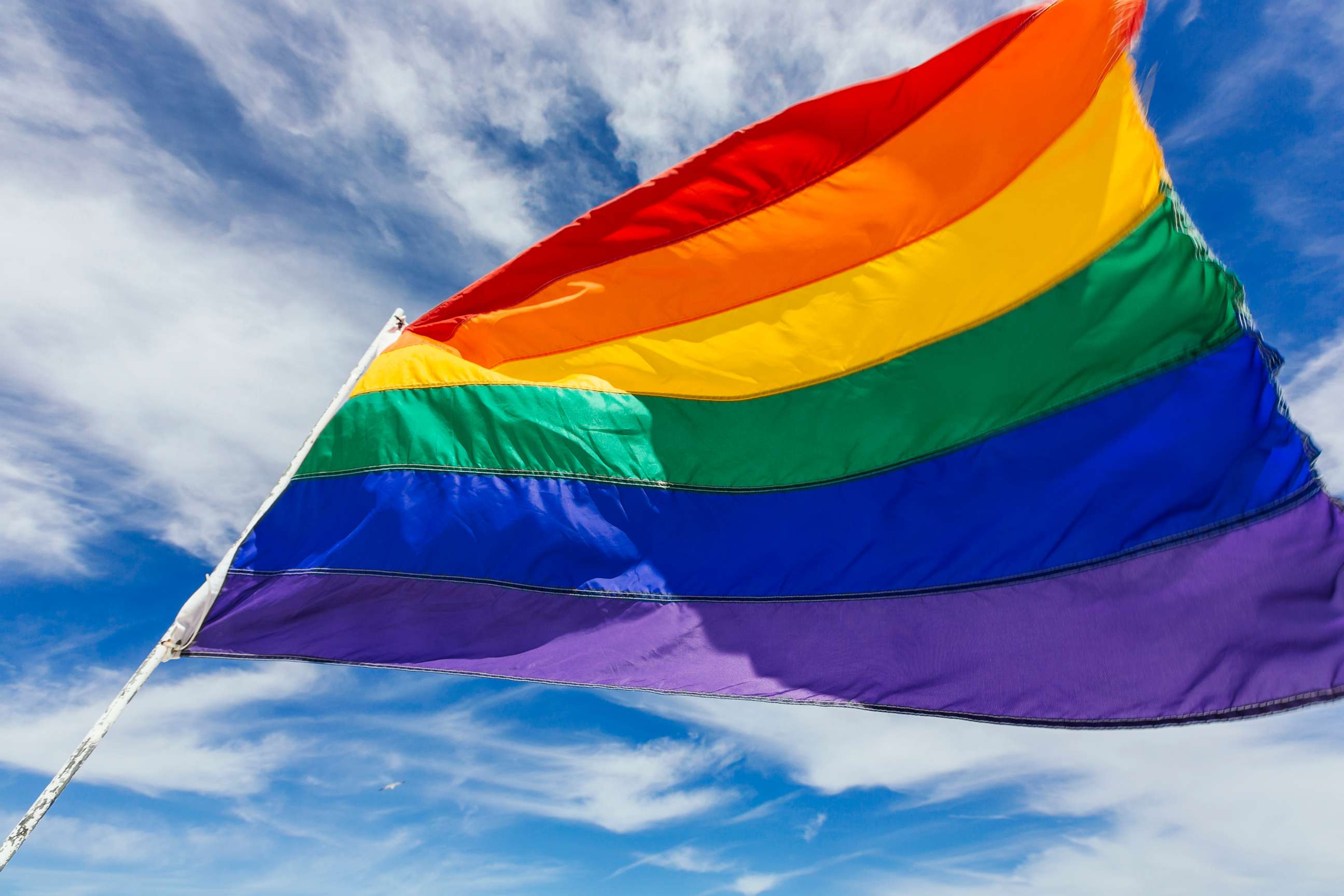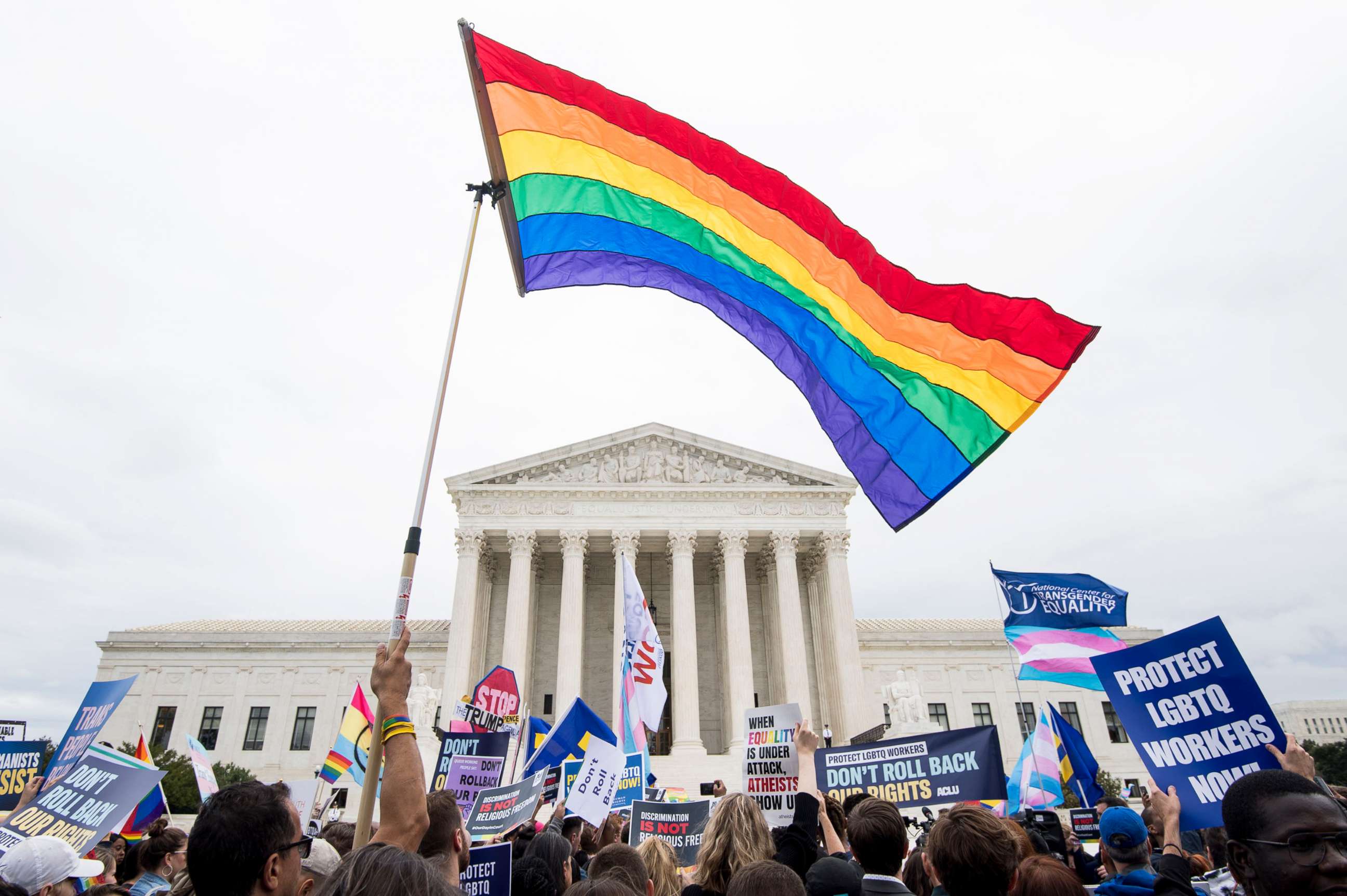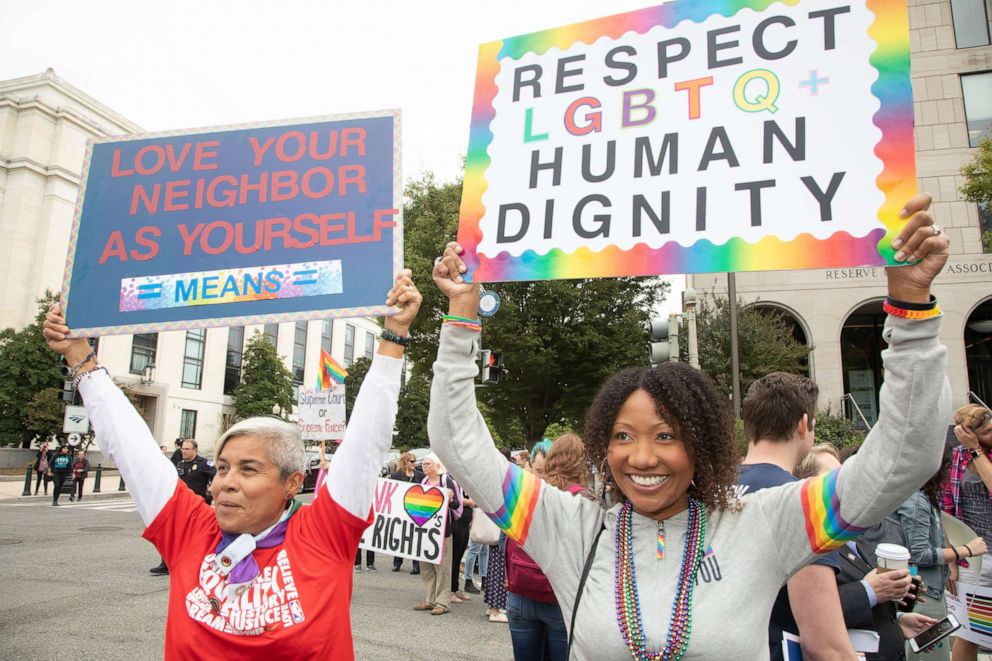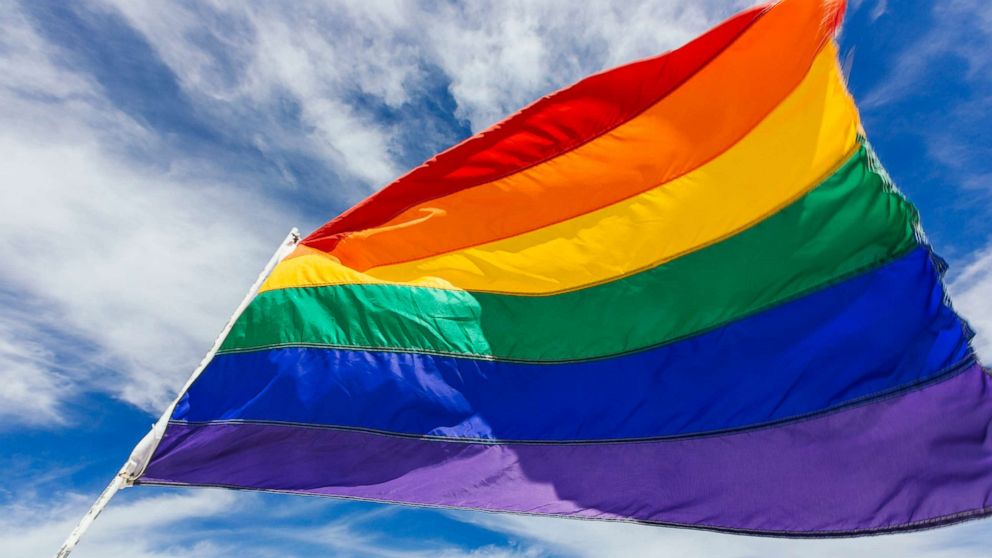How National Coming Out Day has changed revealing your 'authentic' self over 3 decades
For Sam Brinton, who was assigned male at birth but identifies as non-binary, coming out feels like an evolving and life-long process. They're coming out every time they reveal to a stranger that their preferred pronouns are "they, them and their," or every time they open up their love life to a new friend.
"I have to come out almost every single day because of the nature of my work," said Brinton, a civil rights advocate for LGBTQ youth, told ABC News ahead of National Coming Out Day on Friday. "But thanks to technology, social media and the many resources available now, I have the tools to do it in ways that are healthy and safe for me. It's a really interesting time because we get to choose what we want to share when we want to share it with."
"I think the coming out process, in general now, is all about self-determination, self-empowerment, and the idea that it's your story to tell not their story to hear. It's all about you," they added.
But coming out didn't always feel like an empowering thing for Brinton and it definitely wasn't a source of strength -- at least not at first.
Like many people who identify as LGBTQ, Brinton was born into a religious family in Florida and their first time coming out to their family resulted in trauma. One day, when Brinton was just 11 years old, they unknowingly outed themselves while discussing the idea of Playboy magazines.
"I thought I was so holy and righteous that it Playboy didn't affect me. So when I went and told my family this, they were very proud until they realized that I was having those excited feelings when I thought about the boy next door," Brinton said. "I didn't realize that I was saying the words 'I'm gay,' I was just saying, 'this is how I find attraction.' I was so young and I didn't have the words for it."

The revelation quickly lead to agony as members of their family became physically abusive towards them after learning about their attraction to boys. Months later, Brinton was forced into conversion therapy -- a painful process that is now illegal for minors to undergo in many states.
"What they did to me was wrong, but my family was trying to figure out the words too," they said. "I wasn't in a safe and secure environment and I didn't realize I was coming out in the first place. So knowing that difference and knowing your environment is really, really important."
Today, as head of advocacy and government affairs for The Trevor Project -- one of the country's leading LGBTQ youth suicide prevention organizations -- Brinton is more empowered than ever. They've dedicated their life to efforts aimed at banning conversion therapy for minors and propelling LGBTQ rights.
But as members and allies of the LGBTQ community gather to celebrate the 31st annual National Coming Day, Brinton, 31, said it's an important time to reflect and appreciate how far the equality fight has come.
"We have things like Trevorspace, which is kind of like Facebook but specifically for LGBTQ youth. For many of the users, it's one of the only places where they're out. This is a place where they can share with others about things that are important to them and learn from others as well," Brinton said. "In other more public spaces like Twitter and Instagram, and Facebook, LGBTQ youth are able to interact with a variety of individuals who can be very supportive."
Brinton also mentioned "Instagram therapy influencers" who are "promoting ideas around positive thinking and showing people that when you're feeling alone there are ways to learn and get help."

When activists Robert Eichberg and Jean O'Leary founded National Coming Out Day to promote LGBT awareness in 1988, it was very common for people to prolong or avoid the coming out process due to fear of isolation, stigma, and being ostracized, according to Bob Witeck, a market research expert who was tapped by the Human Rights Campaign to help promote the holiday in the early 1990s.
"Family rejection, homelessness and being fired were real consequences for coming out in the 1980s," Witeck told ABC News. "You could potentially become a felon too because anti-sodomy laws were still on the books in many states. People weren't being criminalized or arrested, outright, but in theory, being openly gay in a state like Virginia meant going up against sodomy laws among other things."
In 1994, Witeck helped launch National Coming Out Day campaigns centered around openly gay and lesbian actors like Amanda Bearse, best known for her role as neighbor Marcy on the hit sitcom "Married… with Children," and Dan Butler, who played a hyper-masculine straight man on "Frasier" at the time. In all of the posters, publicity and public appearances for the campaign, Bearse and Butler helped popularize the expression "I'm not a straight person, but I play one on TV."
The actors put their Hollywood careers online by coming out and becoming the campaign's first celebrity spokespersons, but the move was well-received, according to Witeck.
"We wanted to create positive examples and role models for others who were thinking about coming out. These actors risked a lot. They worried about it and frankly I'm not sure that it propelled their careers, but it was important work," Witeck said. "All our research told us that people who know gay people are more likely to support LGBTQ causes. Our goal was about getting public attitudes to change."
Witeck, 67, said he begin to come out to his family and friends in the mid-1970s, during a time when people would wait until they were well into adulthood before they even thought about revealing their true gender identities, research shows.

Today, thanks to technology, social media and resources like The Trevor Project's new coming out handbook, people are more likely to come out at a younger age. Research in the 1970s documented LGBTQ people coming out, on average, in their early 20s, according to San Francisco State University’s Family Acceptance Project. Now, the average age has dropped to anywhere between 14 and 16, according to the university.
Activists and LGBTQ rights advocates attributed the drastic change to the rapid rise of the internet, which has helped young people find the right language to describe themselves and connect with people who will affirm their identities in ways their families may not.
"In being able to say who you are, you are more able to live your own life to the fullest -- authentically and openly. That's life saving for so many people in this country and so for many members of the LGBT community," Sarah McBride, a spokesperson for the Human Rights Campaign, told ABC News. "It's a powerful personal act, but it's also transformational because it also gives other people the permission to either come out themselves, or to be willing to be vulnerable in whatever fears they have around who they are, whether they're LGBTQ or not."
However, Brinton said that the gift of social media could also be a curse for some as it makes it much easier for people to be unwillingly outed by others.
Social media is also rife with bullies who prey on vulnerable populations. Less than a month ago, a Tennessee teenager took his own life after being bullied by classmates on social media who outed him as bisexual. It’s a story that Brinton says they hear too often.
McBride, who is a transgender woman, said she was reminded of the urgency around affirming one's gender identity when she lost her husband Andrew Cray, who was also transgender, to cancer in 2014, just days after their wedding. Cray was 28.
"When he came out, he was supposed to have three quarters of his life left to live as his authentic self but because of circumstances outside his control he had less than a quarter," McBride said. "So on this National Coming Out Day, I'm reminded of the urgency of making sure that we build a world where everyone can come out because we don't know how long we have."
"Every day that we asked LGBTQ people to sit back and even stay in the closet while we have a slow conversation around ensuring dignity and opportunity that means we are asking people to watch their one life pass by without the authenticity and respect and fairness that every person deserves," she added.




